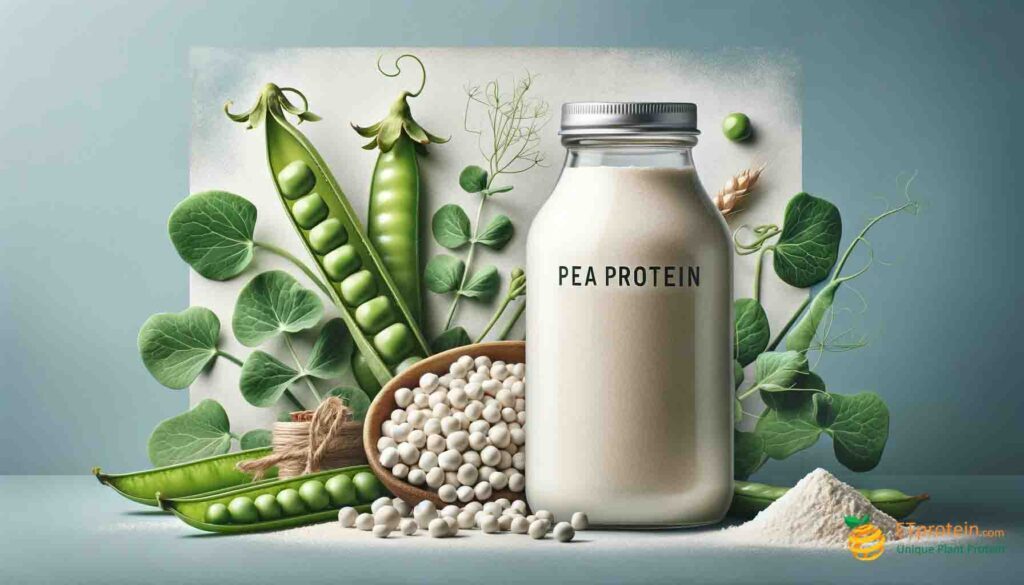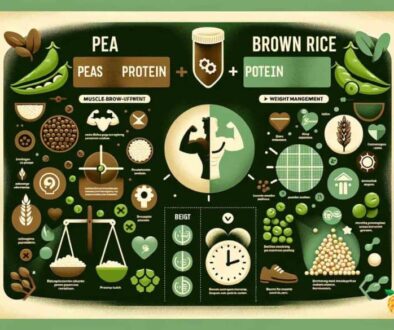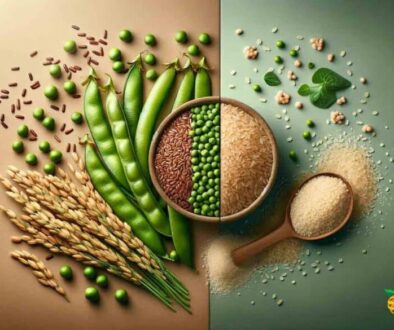Is Pea Protein Good or Bad for You?
Explore the benefits and downsides of pea protein for health, fitness, and dietary needs. Recommended: ETprotein Company’s premium pea protein.
Introduction
In the quest for healthier lifestyles and dietary choices, pea protein has emerged as a popular plant-based alternative to traditional animal-derived proteins. This article delves into the nutritional aspects, benefits, and potential concerns associated with pea protein, drawing upon scientific research and expert insights.
What is Pea Protein?
Pea protein is derived from yellow peas, a type of legume rich in essential nutrients. It’s processed to remove most of the fiber and starch, resulting in a concentrated protein product. This plant-based protein source is gaining popularity, especially among vegetarians, vegans, and those with allergies to dairy and eggs.
Nutritional Profile
Pea protein is known for its impressive nutritional profile. It’s a complete protein, meaning it contains all nine essential amino acids that the body cannot produce on its own. Moreover, it’s rich in branched-chain amino acids (BCAAs), particularly arginine, which are crucial for muscle building and recovery.
Benefits of Pea Protein
- Muscle Growth and Recovery: With its high BCAA content, pea protein aids in muscle growth, maintenance, and recovery, making it a favorite among athletes and fitness enthusiasts.
- Hypoallergenic: Unlike whey or soy proteins, pea protein is hypoallergenic, making it suitable for individuals with common food allergies.
- Heart Health: Studies suggest that pea protein can help lower high blood pressure and cholesterol levels, contributing to better heart health.
- Weight Management: Being high in protein and low in calories, it can promote satiety and aid in weight loss efforts.
- Easy Digestibility: Pea protein is easier to digest compared to some other protein sources, thanks to the absence of lactose and gluten.
Potential Downsides
While pea protein is generally safe and beneficial, there are a few considerations:
- Limited Fiber: Processing removes most of the fiber from peas. Those relying heavily on pea protein should ensure they get enough fiber from other dietary sources.
- Taste and Texture: Some might find the taste and texture of pea protein less palatable than animal proteins.
- Incomplete Amino Acid Profile: Although it’s a complete protein, pea protein has lower amounts of certain amino acids like methionine. It’s advisable to consume a varied diet to compensate for this.
Comparing Pea Protein to Other Proteins
When compared to whey, soy, or rice proteins, pea protein stands out for its hypoallergenic properties and balanced amino acid profile. It’s a sustainable, environmentally friendly option with a lower ecological footprint than animal-based proteins.
Expert Opinions
Nutritionists and dietitians often recommend pea protein as a viable protein source for various dietary needs. Its benefits in muscle building, heart health, and weight management are backed by scientific research, making it a trusted choice for health-conscious individuals.
Incorporating Pea Protein into Your Diet
Pea protein can be easily incorporated into your diet through supplements, protein powders, or enriched foods. It can be blended into smoothies, mixed into oatmeal, or used in baking to boost protein intake.
Conclusion
Pea protein offers a plethora of health benefits, particularly for those looking for plant-based protein sources. Its role in supporting muscle growth, heart health, and weight management, coupled with its hypoallergenic nature, makes it a favorable choice for many.
About ETprotein:
ETprotein, a reputable Pea protein Chinese manufacturer and supplier, is renowned for producing, stocking, exporting, and delivering the highest quality organic bulk vegan protein and plant proteins. Our offerings, characterized by a neutral taste, non-GMO, allergen-free attributes, cater to a diverse range of industries. We serve nutraceutical, pharmaceutical, cosmeceutical, veterinary, as well as food and beverage finished product distributors, traders, and manufacturers across Europe, USA, Canada, Australia, Thailand, Japan, Korea, Brazil, and Chile, among others.
Our specialization includes exporting and delivering tailor-made protein powder and finished nutritional supplements. Our extensive product range covers sectors like Food and Beverage, Sports Nutrition, Weight Management, Dietary Supplements, Health and Wellness Products, and Infant Formula, ensuring comprehensive solutions to meet all your protein needs.
As a trusted company by leading global food and beverage brands and Fortune 500 companies, ETprotein reinforces China’s reputation in the global arena. For more information or to sample our products, please email sales(at)ETprotein.com today.














